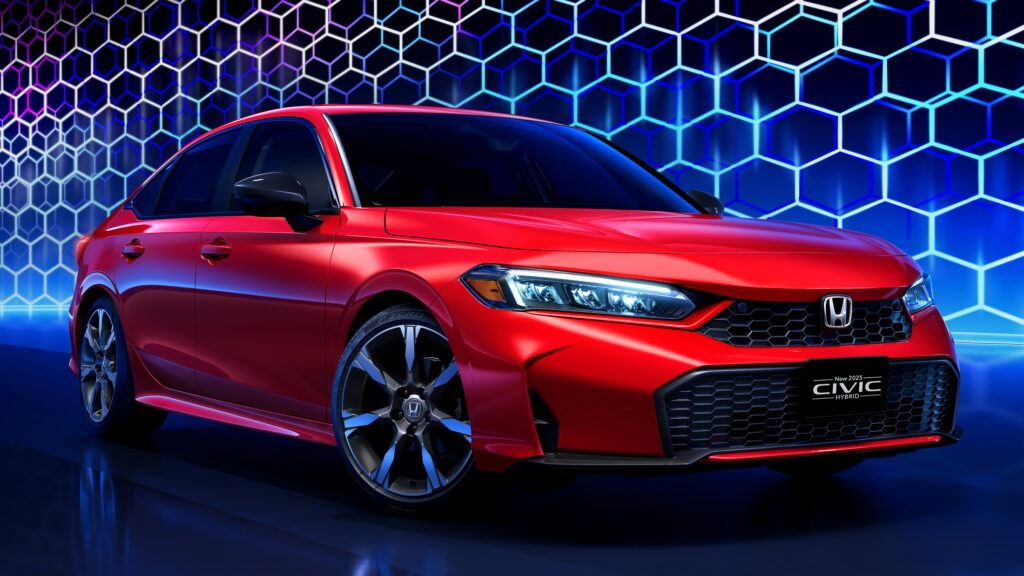Expanding the Honda and Acura Lineups
2024 promises to be an eventful year for Honda and Acura as they gear up to expand their vehicle offerings. The lineup includes a new compact SUV from Acura and innovative powertrain options for popular models such as the Honda Civic and CR-V. Additionally, updates are on the horizon for existing models, including the Acura MDX and RDX, enhancing their appeal with fresh designs and features.

Honda’s Hybrid and Electric Vehicle Innovations
Honda is set to introduce the 2025 Civic hybrid, featuring a powertrain that combines a 2.0-liter Atkinson-cycle engine with a dual-motor hybrid system, similar to those used in the Accord and CR-V hybrids. This new hybrid is expected to contribute significantly to Civic sales, aiming for about 40% of the model’s total sales. The release will include both sedan and hatchback versions, highlighting Honda’s commitment to expanding its hybrid offerings.
Launch of New Electric and Hydrogen-Powered Models
The year will also see the launch of Honda’s all-electric Prologue SUV, starting in states with robust EV markets like California, Texas, and Florida, followed by a broader national rollout. In addition, Honda plans to debut the CR-V FCEV, North America’s first production model to integrate plug-in and fuel cell technologies. Simultaneously, Acura is preparing to launch the ZDX SUV, its own all-electric model, with sales processes fully online through a new digital showroom.
Introducing New Acura Models and Upgrades
Acura is expanding its SUV range by introducing a new sub-compact model, positioned alongside the Integra at the entry level of its lineup. This new vehicle is expected to complement the compact RDX and mid-sized MDX. Acura is also planning significant updates for the MDX, including aesthetic revisions, a new Bang & Olufsen sound system, and a transition to a touchscreen-only infotainment system, enhancing user interaction and convenience.
Anticipating Market Growth and Environmental Commitment
With these updates and new models, American Honda anticipates a sales increase of 10 to 15% in 2024. These innovations align with Honda’s strategic push towards a zero-emissions future by 2040, marking significant steps toward electrification and sustainability. Mamadou Diallo, senior VP of sales at American Honda, emphasizes the company’s focus on hybrid models, electric vehicles, and ongoing enhancements to their internal combustion engine products as they prepare for a transformative year.
